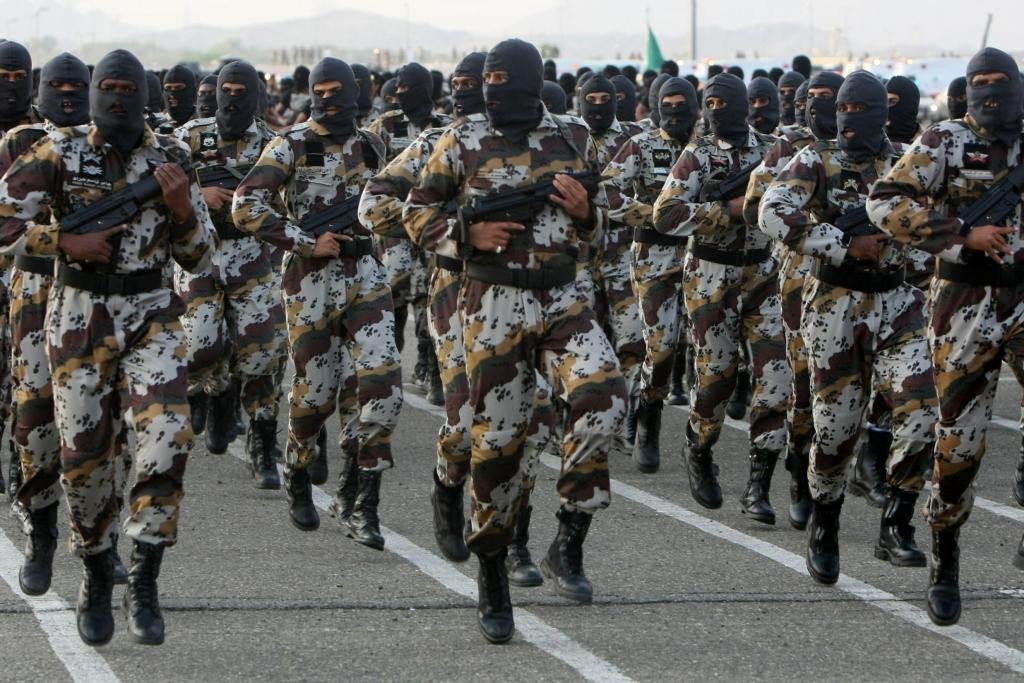As Saudi war crimes and crimes against humanity continue apace in Yemen, Saudi Arabia is now apparently attempting to gain public support and better reception from the viewing audience by painting itself as an enemy of al-Qaeda and ISIS, despite the fact that the feudal monarchy’s reputation for supporting these very same terror organizations has been documented time and again. From Syria and Libya to Yemen, Saudi Arabia has proven itself repeatedly as a funder, organizer, and supporter of ISIS and al-Qaeda while, at home, it has demonstrated that its own government and ISIS are more alike than they are different.

Originally appeared at activistpost
Still, Saudi Arabia is attempting to show that it is, in fact, the enemy of al-Qaeda by issuing claims that the Saudi “coalition” in Yemen has recently fought a large-scale battle against the terror organization and that it was able to capture the city of Mukalla after killing around 800 terrorists.
As AFP reports,
Yemeni troops backed by Arab coalition air strikes killed more than 800 members of al-Qaida in an attack on a southeastern provincial capital held by the group for the past year, the coalition said Monday.
Pro-government forces recaptured an oil terminal as well as the city of Mukalla, which was considered a jihadist stronghold, military sources said.
“The operation resulted… in the death of more than 800 al-Qaida members and some of their leaders, while some others fled,” Arab coalition commanders said in a statement published by SPA, the official Saudi news agency.
AFP notes, however, that the death toll cannot be independently verified and pointed out that no civilian deaths were reported. This latter detail is most questionable to say the least.
What is interesting is that the alleged operation is part of another alleged operation “aimed at securing parts of the country captured by jihadist militants who have exploited a 13-month war between Gulf-backed loyalists and rebels supported by Iran.” The operation itself takes place alongside the UN-brokered ceasefire was enacted on April 11 where jihadist groups are excluded.
What is even more interesting, however, is the description provided by “military officer” sources quoted by the AFP as to the nature of the battle for Mukalla.
As AFP reports,
“We entered the city centre (of Mukalla) and were met by no resistance from Al-Qaeda militants who withdrew west” towards the vast desert in Hadramawt and Shabwa provinces, a military officer told AFP by phone from the city the jihadists seized last April.”
The officer, who requested anonymity, said residents of Mukalla, home to an estimated 200,000 people, had appealed to the jihadists to spare the city the destruction of fighting and to withdraw. Yemeni military sources said Emirati military vehicles were used in the operation and that troops from the Gulf country, a key member of the Saudi-led coalition, were among the forces that entered Mukalla.
AFP could not immediately confirm these reports from officials in the United Arab Emirates.
While it was reported that the coalition members had conducted airstrikes against “AQAP positions” in Yemen, it is important to note that coalition forces admittedly met no resistance when entering Mukalla. Putting aside the fact that the Yemeni people would scarcely be able to tell the difference between AQAP and Saudi Arabian control of their country to begin with, at what point did the Saudis kill 800 AQAP members? Was it in the alleged and unconfirmed airstrikes which apparently kill only terrorists but no civilians?
Is it not extremely convenient that Saudi forces would bomb Yemen back into the Stone Age, allow AQAP to gain vast amounts of territory against Houthi, rebel, and government forces in the process and then retake it from them “without any resistance” shortly after a ceasefire agreement is made that does not include AQAP?
Was the Saudi bombing merely an act of death squad herding or was the Saudi bombing never aimed at AQAP at all? Were the casualties actually civilians simply labeled as terrorists for propaganda purposes? Was there actually a bombing campaign?
What kind of military operation kills 800 militants while, at the same time, faces no resistance from those militants?
All of these questions are relevant and must be asked of any reports suggesting Saudi military action against AQAP in Yemen. While it is impossible to draw concrete conclusions based on the reports currently circulating throughout Western media, considering the nature of the Saudi involvement and their history of supporting terrorism across the world, one must question their motives as well as any claims made by the Saudi government.
Al-Mukalla is a strategic city in the Abyan Governate, a very important territorial gain since it provides access to the coast.
Brandon Turbeville – article archive here – is the author of seven books, Codex Alimentarius — The End of Health Freedom, 7 Real Conspiracies, Five Sense Solutions and Dispatches From a Dissident, volume 1and volume 2, The Road to Damascus: The Anglo-American Assault on Syria, and The Difference it Makes: 36 Reasons Why Hillary Clinton Should Never Be President. Turbeville has published over 650 articles on a wide variety of subjects including health, economics, government corruption, and civil liberties. Brandon Turbeville’s radio show Truth on The Tracks can be found every Monday night 9 pm EST at UCYTV. His website is BrandonTurbeville.com He is available for radio and TV interviews. Please contact activistpost (at) gmail.com.




Every sane person comes to the same conclusions, like the author.
It was really a ridiculous message, those 800 dead AQ fighters.
Some sources named 11000 AQ fighters there.
Taking a hit after a hit (not only from AQ), suddenly SA would kill almost 8% of AQ fighters on one afternoon???? this sounds ridiculous also to me, being no military planer, or military analyst.
Once more, author pointed the focus to relevant questions.